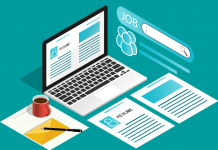It’s unfortunate how many applicants go to interviews without having any idea what they’re getting into. Not knowing alone is one thing, but not knowing simply because you choose not to prepare is another. Here are the top 34 mistakes call center applicants should avoid to get the job.
On Interview Questions
1. Giving vague answer when asked, "Why do you want to work for our company?"
Some interview questions requires nothing but being specific answer. This is the case with the interview question, "Why do you want to work for our company?".
Instead of saying something like, "Because you're a good company.", come up with a specific and actual reason why you like the company and support your answer by stating a common fact— like an award it recently received for instance.
Click here for the sample answers: How to Answer: Why Do You Want to Work for Our Company?
2. Stating what's on your resume when asked, "Tell me something about yourself."
This question isn't asking about your address, age, birthdate, and nickname. It wants to know what makes you fit for the job. Therefore, cite your experiences inside and outside work that makes you deserving to land the job.
Click here for the sample answers: How to Answer: Tell Me Something About Yourself (with Complete Examples).
3. When asked, "What is your greatest weakness?", you highlight a strength and disguise it into a weakness.
"My weakness is that I'm a workaholic so I barely spend time with my family even on the weekends and holidays."
This technique might have worked a long time ago but not anymore. It's so overused that interviewers nowadays just don't wanna hear this.
What to do instead
State a weakness that isn't so terrible they wouldn't want to hire you and state the specific actions you did to overcome or deal that weakness that weakness to improve yourself. I say this is better because it's more honest and realistic that it won't set off the interviewer's inner lie detector. 🙂
Click here for the sample answers: How to Answer: What is Your Greatest Weakness?
4. Sugarcoating the real reason why you applied for the job
"Why do you want to work in a call center?"
Some would say, "Because I want to gain the experience.", or "Because talking to customers is a challenge for me and I love challenges."
These sound great, however, don't forget the main reason you applied for the job: money.
Click here to get the sample answers: How to Answer: Why do You Want to Work in a Call Center?
5. Only citing money as the only reason for applying for the job.
Okay so I said you should be honest and don't deny money as the reason, right? However, along with it, you need to at least cite some work-related reasons. The goal is to set the balance and make your answer realistic and credible.
You don't want to be too upfront about your money goals that you forget you're applying for a job that require you to prove yourself. Therefore, the answer should be pretty much like this:
"I want to work in a call center because I need to support my parents in sending my brothers and sisters to school. My eldest brother is already in first year college and my eldest sister is graduating high school this year. This is the reason why I decided to apply . The BPO industry pays higher rates compared to other jobs in the the Philippines.
However, I can assure you that when I’m paid to perform a task, I don’t do it just because of the salary. I believe in producing the best quality of work as I understand that your company has to do the same for your clients. It’s a win, win, win for the employees, your company, and the customers. If one of the three isn’t performing well, then all three lose.”
Of course feel free to replace and change depending on your specific financial reasons and professional strengths.
6. When asked, "Why should we hire you?", you talk about your positive traits but can't support them.
When the interviewer asks, “Why should we hire you?”
And you reply, “Because I’m punctual, diligent, thorough, responsible, hardworking, detailed, professional and results-oriented.”
Does it answer the question? Yes.
But is it enough? No.
What is wrong with this answer?
Nothing…
…except that it doesn’t sound convincing at all. When interviewers hear it, here’s what they do: they yawn, think about lunch, and end the interview earlier than it should.
Then your resume takes a permanent vacation to the trash. Ouch.
The problem with this answer is that you're citing a lot of positive traits without supporting any of them. Click here for the sample answers: How to Answer: Why Should We Hire You (with Examples).
7. You’re too honest with your answers.
White lies are necessary. If you can get away with it, then by all means, get away with it, okay? This applies to interview questions like:
Why did you leave your last job?
If you left your job because your boss was horrible and you secretly dislike him, there’s no need to reveal this to the interviewer.
In fact, you’re better off saying the opposite, “My boss was the best boss ever and the company was amazing but (state the reason why you like the job).
Click here for the sample answers: How to Answer: Why Did You Leave Your Last Job?
Where do you see yourself five years from now?
Do you really want to tell the interviewer that five years from now, you are going to leave the job and pursue your nursing degree? Hell no! This one, you have to be sneaky. It’s okay to be a pretty little liar sometimes.
The problem is as truthful as this answer is, companies don’t want to hear this from their applicants, especially if they’re looking for long term employees.
Leaving the company after five years is like telling the company, “I’m gonna resign anytime soon so you better prepare for another training cost, and look for my replacement now before I even start.”
Nobody wants to hire another inexperienced employees only to receive an early resignation letter. It’s an inconvenience they wanna avoid as possibly as they can.
8. Not preparing for the out-of-this-world interview questions.
“How would you describe colors to a blind person?”
“If I give you 5 pencils, what would you do with them except drawing or writing?”
“Which is important, money or knowledge?”
These kind of questions are like the WTF moments in the interview. Consider yourself lucky if your interviewer don’t ask them. However, in very rare instances, some of them do, and being the prepared applicant that you are, you need to understand how to answer them.
Here’s the challenge:
You pretty much know what to answer but you can’t gather your thoughts in an organized way that makes it easy for you to convey and for the interviewer to understand. As a result, you jump from one sentence and idea to another, feeling lost and confused.
Here’s the solution:
Use PREP: Point, Reason, Explanation/ Elaborate, Point. It’s like a map you should follow when answering an open-ended question. This way, you aren’t lost, stay in subject, and get your point across as flawlessly as possible.
Click here for the sample answers: How to Express Your Thoughts in English in a Painless Way
9. Not expecting the situational interview questions.
You’re given a certain situation, then the interviewer asks you what did you do or what would you do if you are in that situation.
It could be something you did in the past. Or something that could happen in the workplace- the “what if?” questions.
- What would you do if you have a rude boss or colleague who’s affecting your productivity at work?
- Tell me about a time you handled a difficult situation at school or in your previous job?
- Can you give me a scenario of how adaptability could help you in a workplace?
There are thousand situational interview questions and preparing for each of them is impossible. However, there’s a format you can follow to answer any situational question:
What’s the situation?
What is your solution?
What’s the result?
Click here for the sample answers: How to Answer Situational Interview Questions.
When online job hunting
10. The “how?”
I’ve seen this time and time again. A recruiter would write a job post on Facebook with the qualifications, job description, and complete instructions. Minutes later, comments would pour in. 50-80% of these comments would be, “how?.”
How could this happen? If an applicant couldn’t read a simple instruction, how could s/he expect to land the job?
The next time you’ve seen a job post you’re interested in, and you don’t want to piss off the recruiter, take a few minutes to read the damn instructions. It’ll make a difference.
11. Spending too much time looking for job vacancies but spending little time preparing for the interviews.
If you’re job browsing like crazy hoping that one day, you’d stumble on that job that requires less skills, you’re wishing for a snowball in hell. Companies look for qualified applicants who can do the job in exchange for their money. So slow down, limit the number of jobs you apply in, and keep yourself busy improving yourself.
Spend 80% improving yourself and 20% looking for jobs. Trust me, call center opportunities will never dry up if you are qualified. Your job for now now is to make yourself qualified.
By the way, if you’re online job hunting, Facebook isn’t the only place to look for. Job portals like JobHero has a database that contains thousands of call center jobs ready for you. So don’t rush. Call center jobs are everywhere.
12. Declining an interview because nobody’s coming with you.
This is especially common among fresh graduates who have never experienced job hunting before. They job hunt in groups to make the experience less nerve wracking. They get support from one another if one of them doesn’t get the job.
While that’s great, make no mistake of thinking that your friends will always be available to accompany you wherever you apply. There’ll be times when it just isn’t possible and you have to go solo. As a newbie, you’ll feel intimated and will want to decline the interview.
Never let that happen. Face that interview no matter how terrified you are. You’ll feel better afterwards, even if you fail.
This is the time of your life where, alone or not, you got to take charge. It’s called maturity, and that’s where all the money and opportunities begin. Who knows, you’re just an interview away from that job offer.
13. Applying even if you’re under-qualified.
Companies filter applications. So if you’re a high school graduate and applies for a job that requires at least two years in college, don’t expect to hear from the company.
Waste no time and move on to the jobs that accept high school graduates—and I’m telling you—there are plenty of them in the call center industry. Once you gain the experience, then you can apply to almost any call center company.
Before the Interview
14. Not improving your typing speed.
Does typing speed matter when applying for call center jobs? Yes and no.
No, because not all BPO companies require their applicants to take typing speed tests in order to pass the screening. Once the applicants pass their interviews, they land job, then the training starts.
However, it is not a good idea to neglect your typing speed. Chances are, you might pass the interview but will risk failing the training. It’s because a slow typing speed affects your learning efficiency during the training.
During training, applicants are expected to absorb a lot of information in a short period of time, which means your undivided attention is required. If it is that demanding, you don’t want your slow typing speed to compromise your chances of getting hired.
My advise? Improve your typing speed now!
It’s not all about speed. It’s more about properly positioning your fingers on the right keys.
The key to an efficient typing speed is by properly positioning your finger close to the nearest keys. This ensures that all ten fingers are typing; not just your two index fingers (like what most people do).
For example, the typing rule says that your left index finger should only press keys F, C, V, G, and T. By assigning specific letters to each finger, you do not have to watch the keyboard while you type and your hands stay in one place while your fingers move. How’s that for fast and convenient?
It’s like creating a different set of eyes for your fingers. Only then will your typing speed starts to improve. You should start seeing improvements within a month, provided that you practice it everyday.
Where to find free typing tutorial online
https://www.typingclub.com/sportal/team-1348/program-typing-jungle.game
http://www.learntyping.org/beginnertypinglesson1.htm
15. Expecting to pass with a basic English.
If you see a recruiter claiming they only require basic English to pass, don’t believe them. Or at least ask them how they define “basic English”.
From their point of view, they might—and likely do—define basic English similar to conversational with an almost neutral accent. However, you might define it as communicating in English despite heavy accent and grammatical errors.
Besides, do you really want to work for a job where you’re struggling to talk to your customers, every single day?
I also heard applicants complaining about the call center industry’s English fluency as a strict requirement. But really, what can they expect? Companies hire qualified applicants in exchange of paychecks, so it’s only logical to expect the best from those applicants. Period.
16. Not preparing what to say.
Some would advise you to go to the interview, say what’s in your head, and all the words would just flow naturally. But hear me out on this one: Rare are the people who can speak articulately without ever preparing for it.
If that’s the case, we would all be great speakers.
So if you ever feel like you need to get a rough idea on what will be asked and what you’ll say in return, then prepare for it. Picture out the situation in your head. Or even better, ask a friend to act as your interviewer, then play it out like it’s real and you will not be as tense.
Read: How to be Confident During Your Call Center Job Interview
17. Having no idea what a call center is.
Sure you want the salary! But to get hired, you have to show the interviewer that you know what you’re getting into, what a call center agent does, and the nature of the job.
When asked, “What is your idea of a call center?” and you reply with silence, or worse, “I have no idea.”, then you should never have applied in the first place.
This interview question is really less about getting the answer right but more of not getting the interviewer pissed off. If you want to the job, you have to keep the interviewer in her best mood. And that means having a tiny bit idea of what a call center is.
Read: How to Answer: What is Your Idea of a Call Center, Contact Center and BPO?
18. Not researching the company’s interview process.
Will it have Versant? Berlitz? How many stages are there in the application process? You must know these a week before the interview. Knowing the company’s interview preparation gives you a better chance of passing the interview over the other applicants.
If you know employees who works for that company, ask them. You can also Google it. In sites like Glassdoor, you should be able to see company’s reviews, salary, and interview process like the screenshot below.
19. Expecting a sure pass just because someone from the company referred you.
Call center is an industry that hires skills, not family members and friends. And if by any chance someone reckless enough from the company hires an unskilled employee because of the said reason, that employee will likely not last long enough to receive his first paycheck.
20. Expecting to pass because you have a degree.
I’ve seen many high school graduate who succeeded in the industry. I’ve also seen 4 year college graduates who didn’t make it in the initial interview.
As long as you finished high school, and your English is conversational with neutral accent and proper grammar, you’re good. You don’t have to have a degree to pass. And remember, holding a degree isn’t an indication that you’ll pass. Skill is.
21. Neglecting the importance of a good resume.
If you don’t highlight certain information about your previous job experience in your resume, chances are, the interviewers are going to miss it and your resume goes to the trash. When creating your resume, you aren’t just sharing information about you, you’re also marketing yourself.
So it is important to create the best resume as you could possibly create.
Click here for guide on how to create an effective resume.
22. Discrepancy of the dates in the resume.
Never apply as a customer service rep in a bank company like JP Morgan Chase and Bank of America without making sure that every single date you put about your job experience is 100% accurate. Banks’ utmost priority is their employees’ integrity and transparency.
I had a friend who applied and the interviewer asked her to memorize the dates of her job experiences without looking at her resume. After a series of questions and corrections, the interviewer found out that there was one company that she didn’t include in the application which caused the discrepancy. She also put the wrong graduation year to which the interviewer suspiciously asked, “How can you forget the year of your graduation?”
She didn’t get the job.
Although this usually applies with bank companies, always make sure to put the accurate dates whichever company you’re applying in. It’s just not worth trying to recall your graduation dates during the interview when you should have been talking about why you deserve the job.
23. Last minute preparation
“My interview is tomorrow. How do I improve my English? What are the interview questions?”
I get these emails a lot, to which, I only have one reply, “WHY!?!”
You’re better off cancelling an interview than going unprepared, knowing that you’ll fail. It just isn’t worth your time and the interviewer’s.
On Improving Your English
24. Not focusing on listening to improve your English.
Sure, we studied English since first grade up to college. Therefore, the problem isn’t likely your vocabulary. We already learned a lot of vocabularies in school.
The usual challenge lie on these two factors: how to speak English so the words just flow naturally without struggling for the right words. In other words, spontaneity of speech. The second, is the accent.
To resolve both problems, there’s one very effective solution—listening to native English speakers. And I say effective because I’ve tried it.
When you listen, you’re teaching your brain to focus to every word.
So everytime you try to speak English yourself, it’s easier to remember what words to say. Isn’t that how we learn to speak our mother tongue in the first place? We didn’t write, we didn’t read—we listened and over time, we learned how to speak.
When you listen, you hear the distinction of each syllable, the rising and falling intonation, the enunciation and every single detail that you just don’t hear when you’re reading or writing English like what we usually do in school.
Here is my complete guide on how to improve your English by listening: How to Improve Your English Accent and Land a Call Center Job.
25. Expecting to pass because you have a wide English vocabulary but with an unintelligible accent.
Again, a wide English vocabulary won’t do you any good if your accent is hard to understand.
According to Learn English with Let’s Talk in YouTube, a neutral accent is an accent that is easy on all ears across the globe, an accent that is understood by all in the international community, no matter who the listener is an American, British, Australian or a Canadian or people from any other country.
Therefore, if you think that your accent could use some improvement, start scouring YouTube for tips on how to improve your accent.
26. Expecting your accent to improve overnight with inconsistent effort
Other applicants get frustrated by the slow progress they’re making with their English. Eventually, they give up applying for jobs altogether.
However, remember that improving your English is no simple task. It’s a skill that you need to learn. Like any other skill, you need to be consistent in order to master it.
I don’t care if you do it as short as 30 minutes, as long as you do it everyday. Consistency is the key.
During the Interview
27. Dressing like you don’t care.
A good rule of thumb is to follow the dress code required by the company. However, if the company doesn’t indicate it, then you can follow the guidelines below.
Here are most of the questions asked:
Can you wear denim jeans in an interview?
Yes, you can wear denim jeans in an interview, however, make sure to limit the colors to black, gray, dark blue, and not like one of those neon and screaming colors like yellow and pink. Call center in general isn’t so strict with dress code. Just make sure you look presentable, put-together and ready for business.
Can you wear sleeveless?
Men cannot generally wear sleeveless but women can, depending on the style and cut of the dress. There are sleeveless dresses and tops that are generally made for work. Just make sure they aren’t too revealing by making sure the length is no shorter than knee level.
Is it okay not to wear heels?
Absolutely. However, make sure that it’s a pair of formal, closed toe shoes and not the open ones.
28. Poor Posture.
When nervous, we have a tendency to appear smaller and slouch. It’s our stress kicking in and our brain feels like we’re in danger and needs to shield us for the impending danger.
However, what would happen if you reverse what you feel by reversing your body posture?
Studies have shown that adjusting your body posture to make you look confident (like sitting with a straight back instead of slouching) helps you feel more confident than anxious.
Instead of letting the emotion control your body language, use your body language to control your emotion.
29. Looking so serious just because your interviewer is.
Smile! It really doesn’t hurt to smile during the interviewer even if your interviewer doesn’t look so cheerful. Besides, your interviewer cannot take it against you and might even smile back when you initiate it.
And just like posture, the presence and absence of smile can affect your feelings. When you smile, you’re signalling your brain to feel less anxious and much happier
Try this little experiment: Put a pencil between your lips and use your teeth to hold it in place. Notice that you feel happier though you don’t know why. Don’t believe me? Watch this video.
30. Avoiding eye contacts
My previous boss never hire applicants who don’t make eye contacts. That’s how important eye contact is. Meeting people in the eyes is like subconsciously showing the interviewer you’re honest, has nothing to hide, and confident.
Of course that isn’t always the case but remember: our brain has a preconditioned set of templates for reading facial expressions. And most of the time, if not all, avoiding eye contacts is a red flag for interviewers.
For instance, picture out a small child who broke a vase and was caught red-handed by her parents. When the parents ask, “Did you break the vase?”, she’s gonna say no. But her body language will tell it all: by notmeeting the parents’ eyes.
The same applies with interviews. Therefore, no matter how shy you are, make eye contacts.
Don’t overdo it though, as too much of it could creep out your interviewer. The lack of it makes you appear untrustworthy and unsure of yourself.
When Rejected
31. Not asking the interviewer why you failed.
Most call center company inform rejected applicants why they fail and what they need to improve on. So if you were told no last time, shut off your emotion, and pay attention to what exactly the interviewer is saying.
If she tells you that your accent and pronunciation need improvement, go ahead make the improvement.
If you’re told your English is carabao, go ahead and improve your English.
And do come back and try again.
Just because you’re rejected doesn’t mean you aren’t getting better every time. If you just listen, and listen intently, you’re actually getting wiser failure after failure.
32. Not trying again
Job interview or not, failure is a possibility in everything we do. It’s sad though that most of us give up. We forget the things we do great at, and tend to focus on the things we suck at.
However, letting failure define you is the best way to achieve nothing in life. That said, if you failed before, the only great option is to try again.
Will it work the second time? Who knows?
Will it work the third time? Nobody knows.
But this you should know for sure: As long as you try again, and again, you’ll learn skills that you didn’t know before. And one day, you’ll finally land the job. And the victory will be sweet.
You see, it’s not a rocket science that you have to be a genius in order to figure it out. You just have to be persistent. Some applicants did it, and so can you.
You Might Also Like:
Call Center Job Hunting Tips for Beginners
How to Improve Your English Accent and Land a Call Center Job





